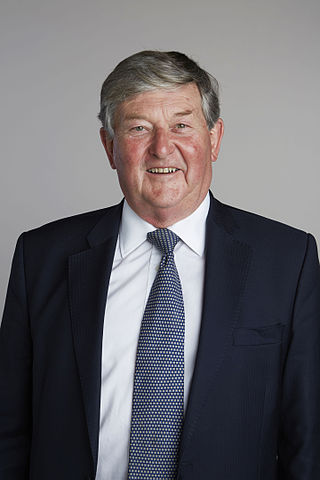Related Research Articles

Imperial College London (Imperial) is a public research university in London, England. Its history began with Queen Victoria's husband, Prince Albert, who envisioned a cultural area in South Kensington that included museums, colleges, and the Royal Albert Hall. In 1907, these colleges – the Royal College of Science, the Royal School of Mines, and the City and Guilds of London Institute – merged to form the Imperial College of Science and Technology.

The Zoological Society of London (ZSL) is a charity devoted to the worldwide conservation of animals and their habitats. It was founded in 1826. Since 1828, it has maintained London Zoo, and since 1931 Whipsnade Zoo.

The Medical Research Council (MRC) is responsible for co-coordinating and funding medical research in the United Kingdom. It is part of United Kingdom Research and Innovation (UKRI), which came into operation 1 April 2018, and brings together the UK's seven research councils, Innovate UK and Research England. UK Research and Innovation is answerable to, although politically independent from, the Department for Business, Energy and Industrial Strategy.

Sir Gregory Paul Winter is a Nobel Prize-winning English molecular biologist best known for his work on the therapeutic use of monoclonal antibodies. His research career has been based almost entirely at the MRC Laboratory of Molecular Biology and the MRC Centre for Protein Engineering, in Cambridge, England.

Poole Grammar School is an 11–18 selective boys grammar school and academy in the coastal town of Poole in Dorset, in the south of England. It is a member of the South West Academic Trust (SWAT). The school was a mathematics and computing school, with an additional specialism, cognition, added in 2006.
Sir David Neil Payne is a British professor of photonics who is director of the Optoelectronics Research Centre at the University of Southampton. He has made several contributions in areas of optical fibre communications over the last fifty years and his work has affected telecommunications and laser technology. Payne’s work spans diverse areas of photonics, from telecommunications and optical sensors to nanophotonics and optical materials, including the introduction of the first optical fibre drawing tower in a university.

Charles Wayne Rees CBE FRS FRSC was a British organic chemist.

William James Stirling was a physicist who served as the first Provost of Imperial College London. He was appointed to this role in August 2013 and retired in August 2018.
Christopher John Marshall FRS FMedSci was a British scientist who worked as director of the Division for Cancer Biology at the Institute of Cancer Research. Marshall was distinguished for research in the field of tumour cell signalling. His track record includes the discovery of the N-Ras oncogene , the identification of farnesylation of Ras proteins, and the discovery that Ras signals through the MAPK/ERK pathway. These findings have led to therapeutic development of inhibitors of Ras farnesylation, MEK and B-Raf.
Sir David Gwynne Evans FRS was a British microbiologist.
Donal Donat Conor Bradley is the Vice President for Research at King Abdullah University of Science and Technology (KAUST), Saudi Arabia. From 2015 until 2019, he was head of the Mathematical, Physical and Life Sciences Division of the University of Oxford and a Professor of Engineering Science and Physics at Jesus College, Oxford. From 2006 to 2015, he was the Lee-Lucas Professor of Experimental Physics at Imperial College London. He was the founding director of the Centre for Plastic Electronics and served as vice-provost for research at the college.
Professor Percival Albert "Peter" Sheppard CBE FRS was a Meteorologist at Imperial College, London from 1952 to 1974 and thereafter emeritus professor.

David Phillips, is a British chemist specialising in photochemistry and lasers, and was president of the Royal Society of Chemistry from 2010 to 2012.

Ronald Alfred LaskeyFLSW is a British cell biologist and cancer researcher.

David Julian Harry Downward FRS FMedSci is Associate Research Director at the Francis Crick Institute and Senior Group Leader at the Institute of Cancer Research. He was formerly head of the Signal transduction Laboratory at the London Research Institute. He is a member of the Editorial Board for Cell.
Sir Tony Kouzarides, FMedSci, FRS is a senior group leader Gurdon Institute, a founding non-executive director of Abcam and a Professor of Cancer Biology at the University of Cambridge.
Joseph Stanley Mitchell, CBE, FRS, FRCP was a British radiotherapist and academic. He was Regius Professor of Physic at the University of Cambridge from 1957 to 1975.

Sir Arnold Ashley Miles CBE FRS was the Director of the Lister Institute of Preventive Medicine and Professor of Experimental Pathology in the University of London from 1952 to 1971.

Sir James Cuthbert Smith is an Emeritus Scientist at the Francis Crick Institute, Honorary Fellow of Christ's College, Cambridge and President of the Council at the Zoological Society of London.

Robert Charles Swanton is a British physician scientist specialising in oncology and cancer research. Swanton is a senior group leader at London's Francis Crick Institute, Royal Society Napier Professor in Cancer and thoracic medical oncologist at University College London and University College London Hospitals, co-director of the Cancer Research UK (CRUK) Lung Cancer Centre of Excellence, and Chief Clinician of Cancer Research UK.
References
- 1 2 3 4 "'CRUMPTON, Michael Joseph', Who's Who 2014". A & C Black, an imprint of Bloomsbury Publishing plc, 2014; online edn, Oxford University Press, 2013; online edn, Dec 2013. Retrieved 12 August 2014.
- ↑ "Bernal Lecture 2004". The Royal Society. Retrieved 12 August 2014.
- ↑ "London Gazette 52767 page 8". British Government. Retrieved 12 August 2014.